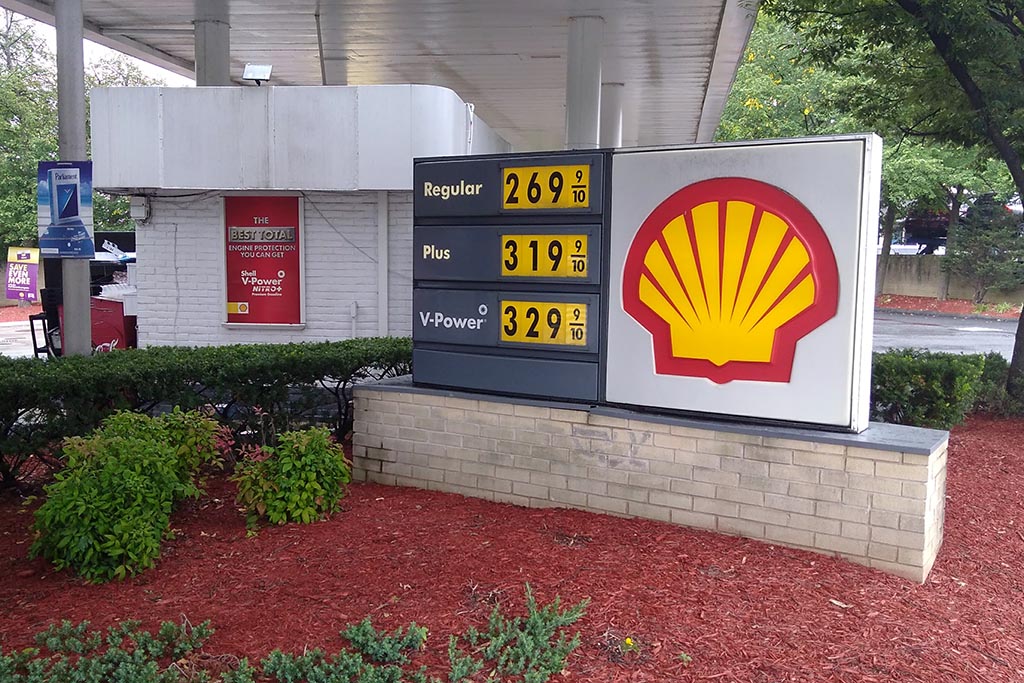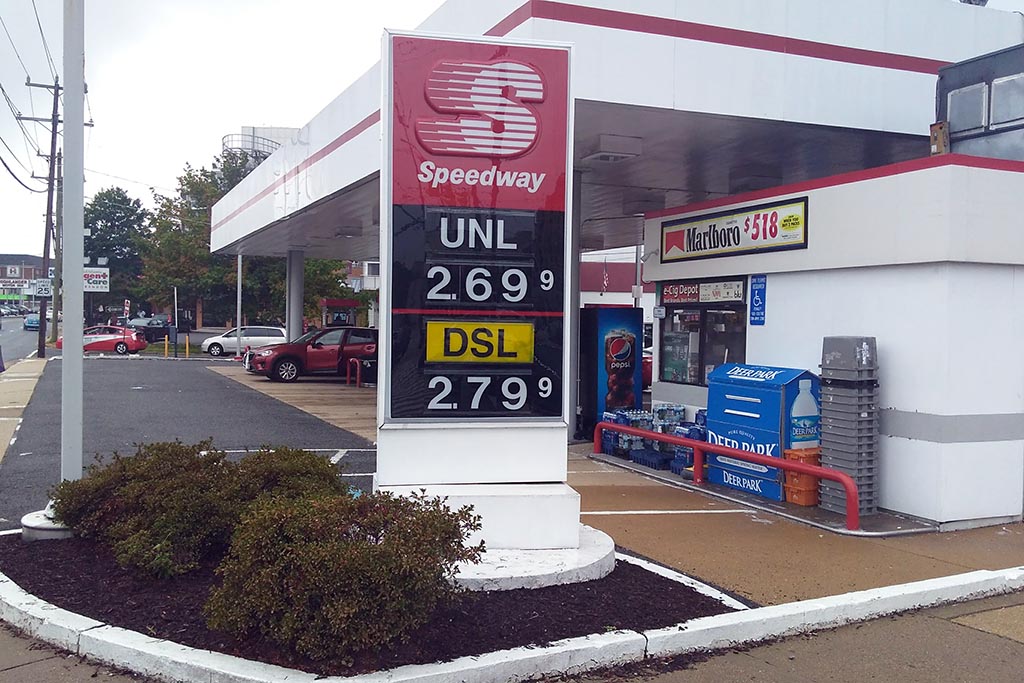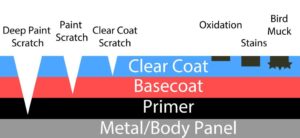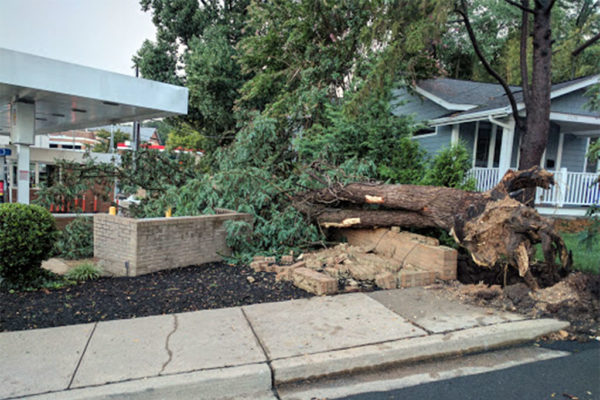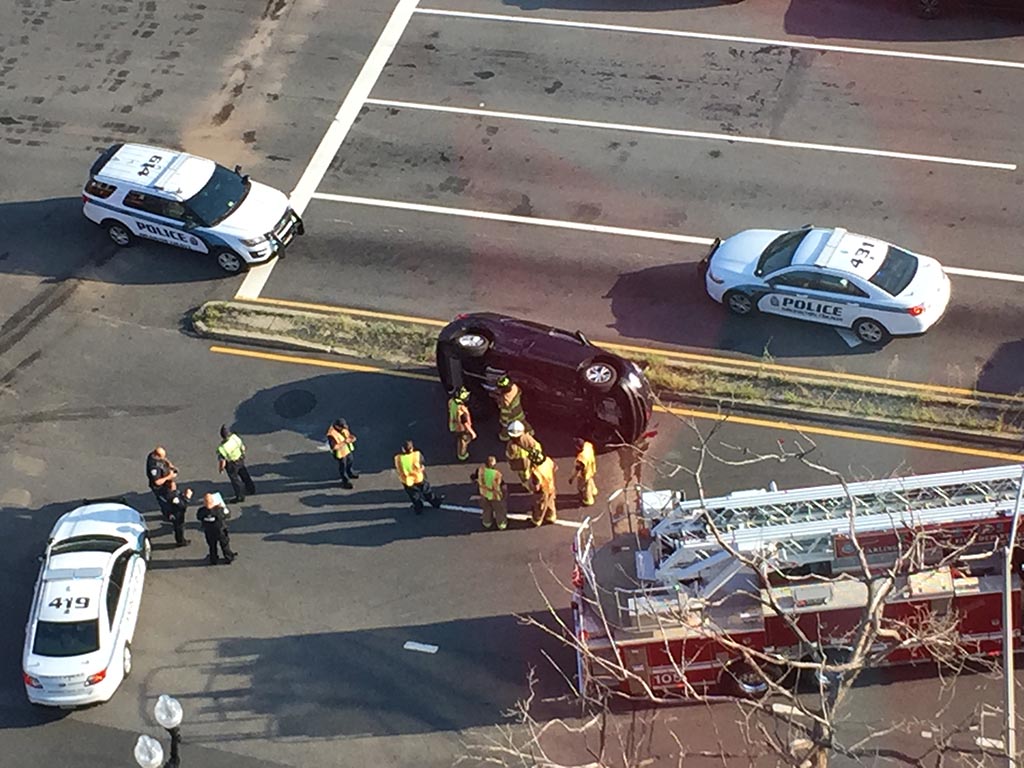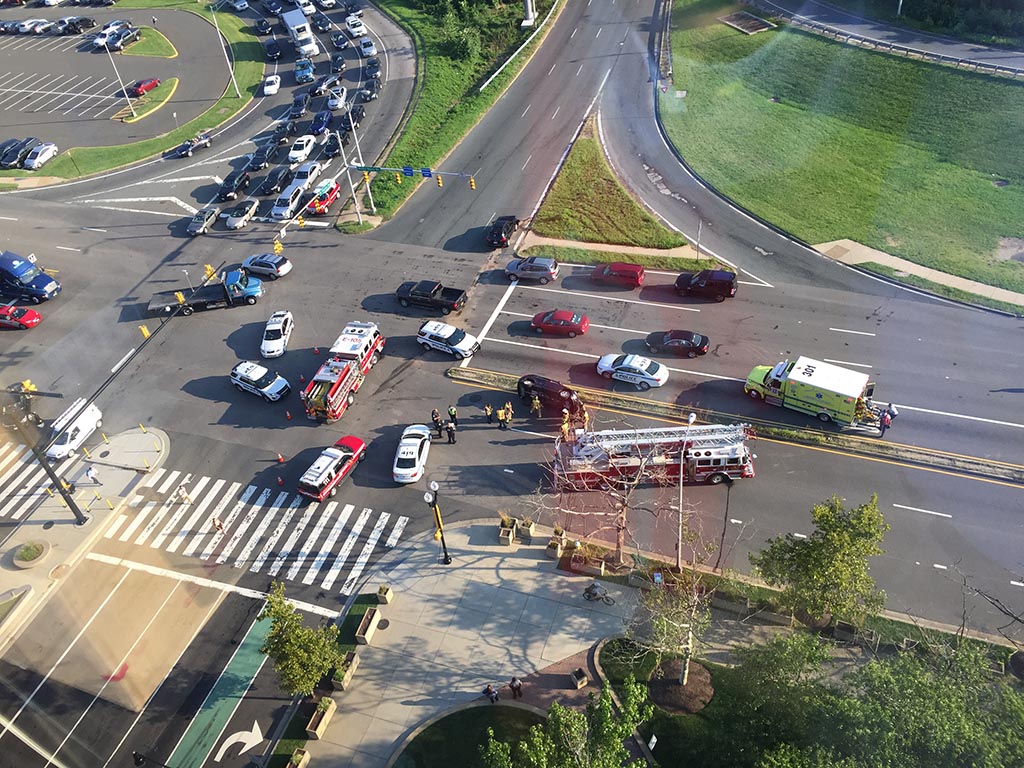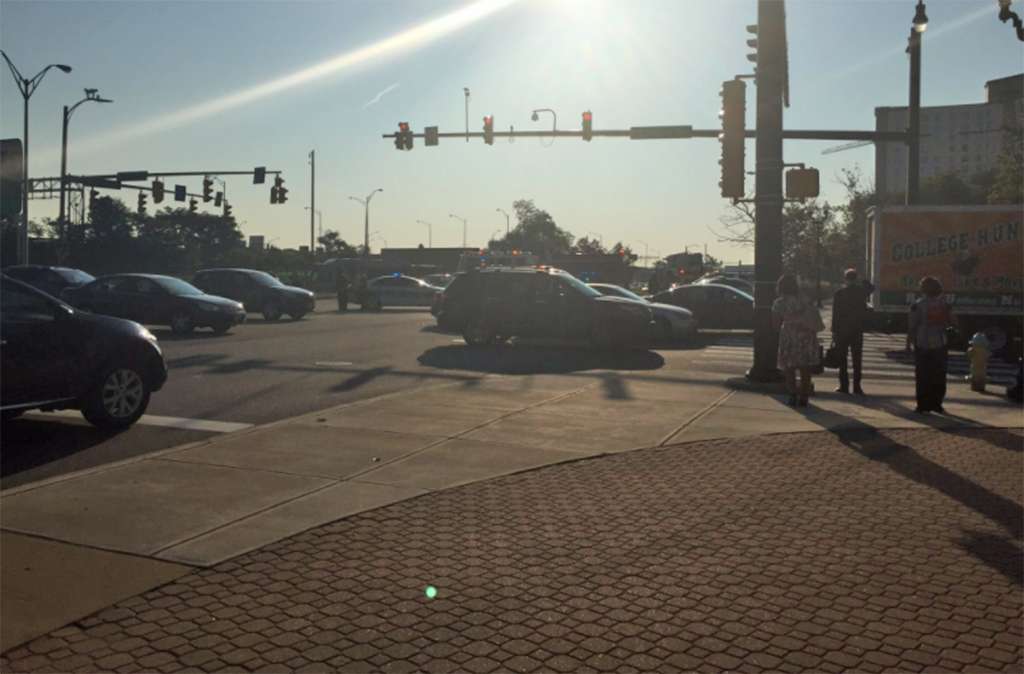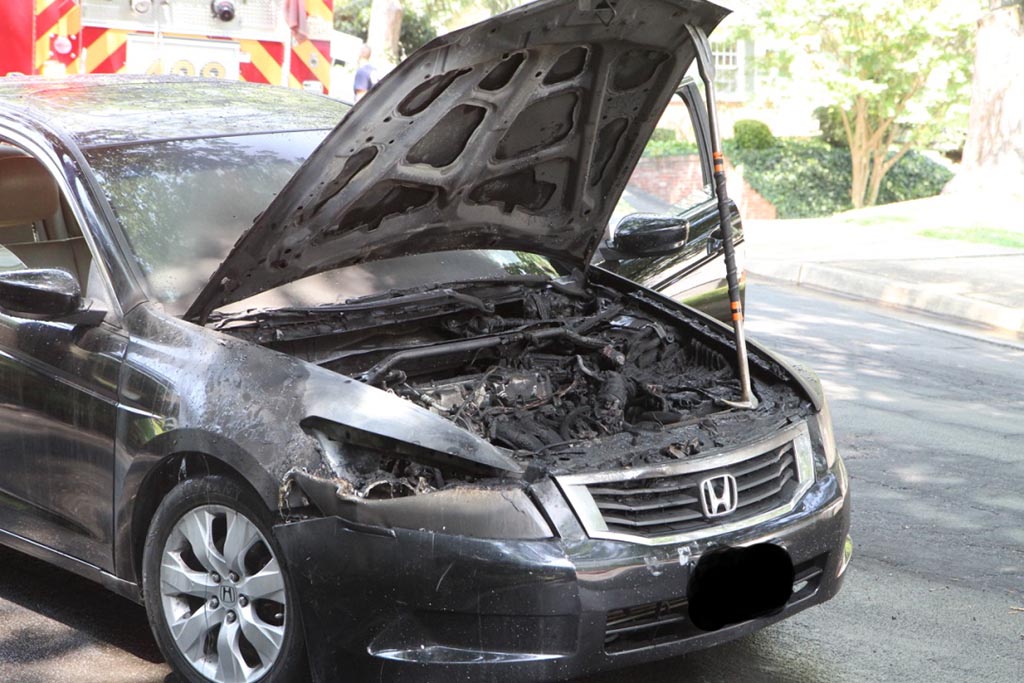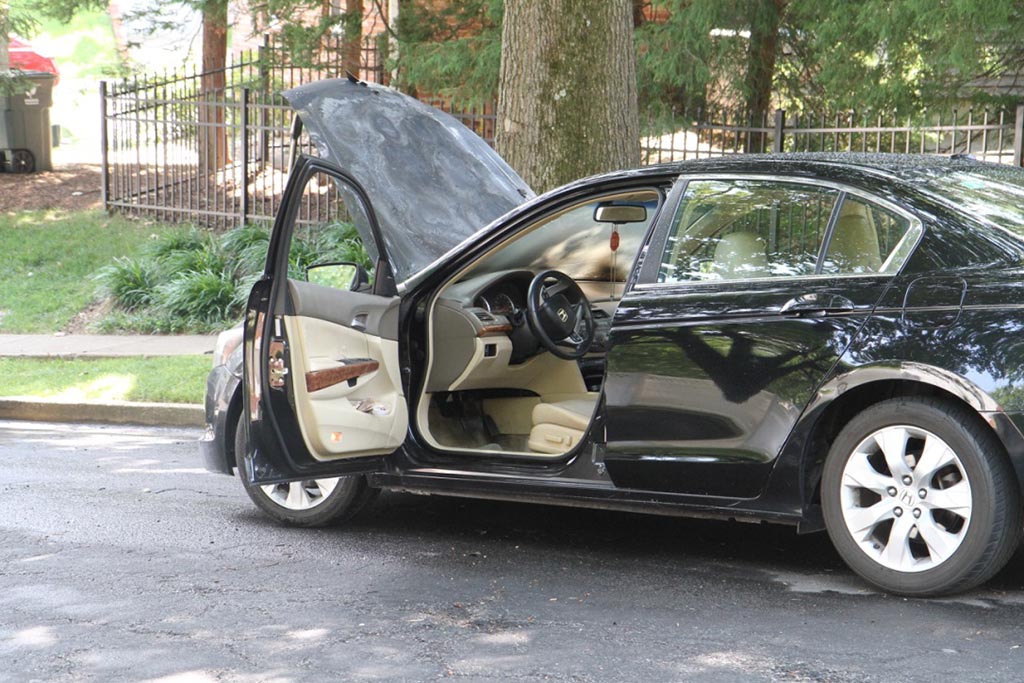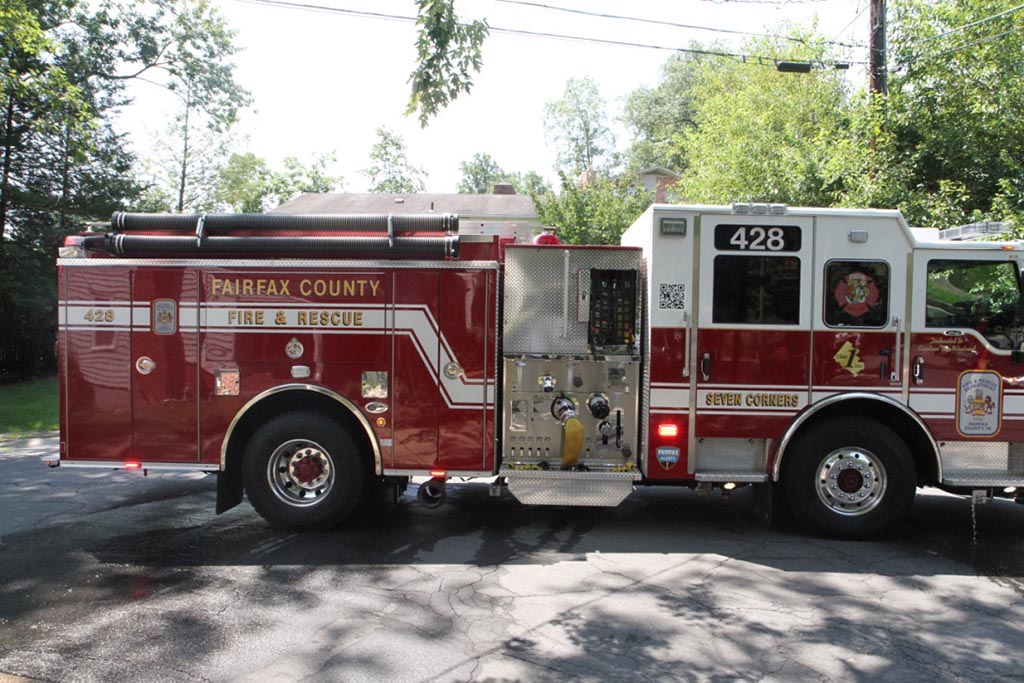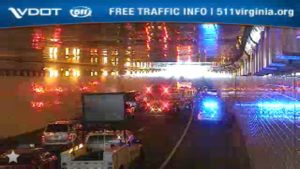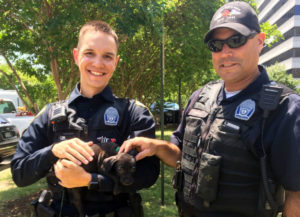Arlington County drivers will have been feeling the effects of Hurricanes Harvey and Irma at the pump, with gas prices spiking by up to 30 cents a gallon or more locally.
Harvey hit oil refineries throughout Texas, with about one-quarter of oil refining capacity on the Gulf Coast being temporarily shut down, according to AAA. And in Arlington and elsewhere in the U.S., prices have spiked as the refineries get back up and running and damage to their systems and pipelines is assessed.
As of Wednesday, prices at the Shell and Speedway stations near Clarendon were $2.69 a gallon for unleaded gas, up from the former price of around $2.30 a gallon.
Despite a spike of around $0.30 cents since the hurricanes, Virginia remains one of the least expensive states to buy gas, at just over $2.50 a gallon on average, according to GasBuddy.com.
“As in any national or local state of emergency, AAA expects gas prices to be held in check up and down the gasoline supply chain, including prices set by refiners, distributors and dealers unless there is a clearly justifiable reason for an increase,” Jeanette Casselano, a AAA spokeswoman, said.
AAA is also warning anyone looking to buy a car to be careful of buying a flood-damaged used car. When major storms trigger flooding, thousands of totaled cars are shipped out of the affected area and can end up on the used car market elsewhere in the country. As many as a million vehicles may have been submerged by Harvey, AAA said last week.
Sometimes, buyers can be unaware a car has been repaired after being damaged by floodwater. Cars are meticulously dried out, scoured and scrubbed, then the title is “washed,” where it is moved from state to state until it is branded as repairable. They are then sold on by what AAA described as “unscrupulous sellers and fly-by-night operators.”
In a statement, John B. Townsend II, AAA Mid-Atlantic’s manager of public and government affairs, said:
“Use your five senses to detect telltale signs a vehicle has been flooded. Then use your sixth sense. Look for a waterline under the hood, undercarriage and bumpers; for mud and debris inside the cabin and trunk; for signs of rust, and for fogging inside the headlights and taillights. Use your sense of smell to detect the scent of disinfectants or cleansing agents used to cloak musty smells or mold or mildew. Touch the carpet or floor mats for residual traces of wetness or for signs that the carpets, seats and interiors were recently shampooed.
“Listen to the engine to check if it runs smoothly, or runs rough, or makes abnormal noises as it runs. Also listen to the sound system, to check if the electronics are working properly, because some mechanical and electronic components don’t survive flooding. Curiously, the term ‘lemon,’ a slang first used to describe a ‘worthless thing’ and then ‘a defective car,’ stems from a metaphor for ‘something that leaves a foul or bad taste in your mouth.’ That could happen to you if you buy a flood-damaged vehicle.
“Then rely upon your intuition, instincts, and ‘mother wit.’ Flooded cars are not always totaled and 50 percent are eventually resold. But most of all, use your common sense, and always purchase a vehicle history report or obtain a free VIN report for any vehicle suspected of having a watery past.”


